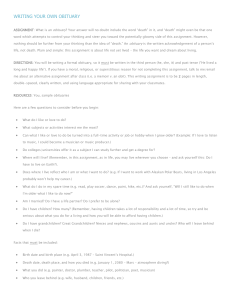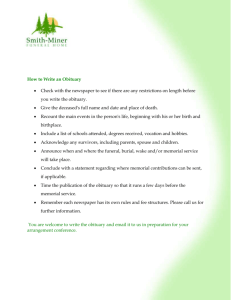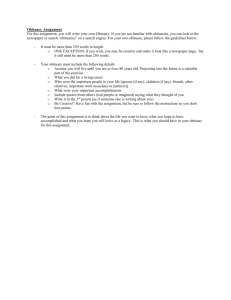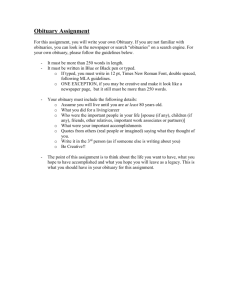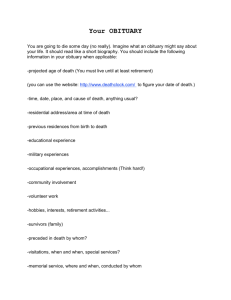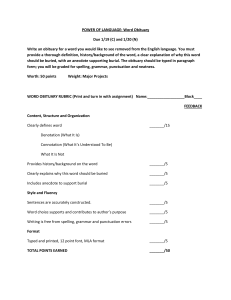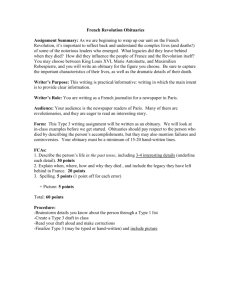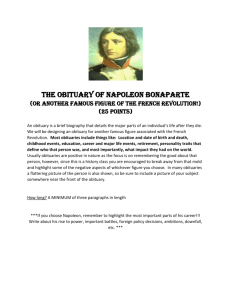TRANSCRIPT: Looking at a Life, After Death
advertisement
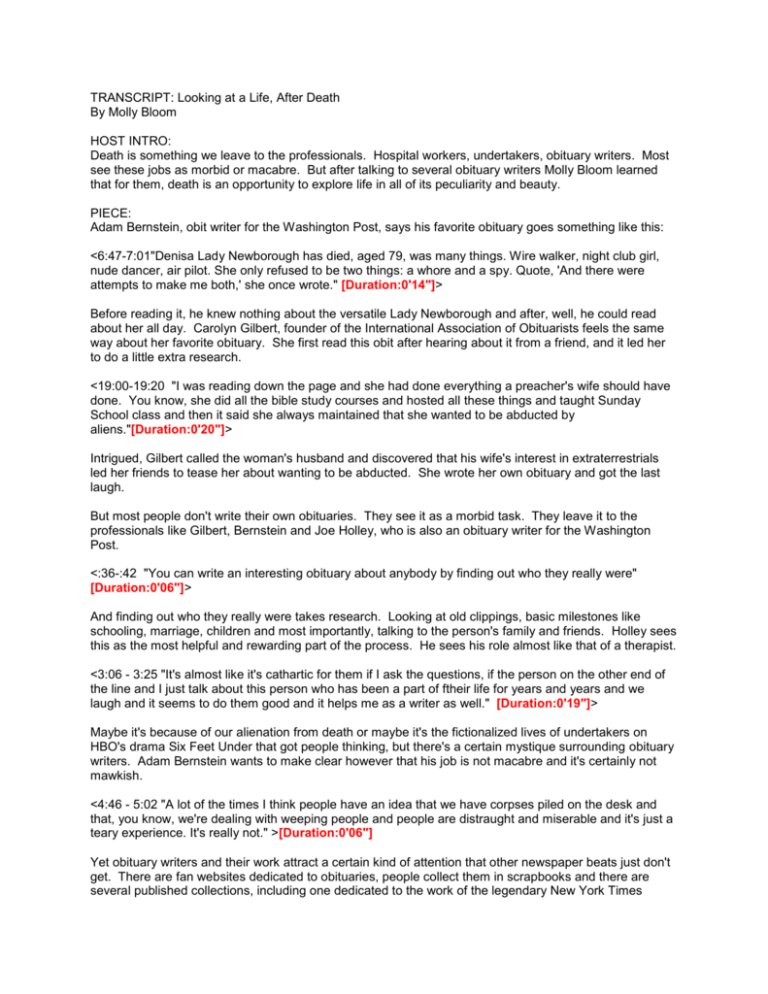
TRANSCRIPT: Looking at a Life, After Death By Molly Bloom HOST INTRO: Death is something we leave to the professionals. Hospital workers, undertakers, obituary writers. Most see these jobs as morbid or macabre. But after talking to several obituary writers Molly Bloom learned that for them, death is an opportunity to explore life in all of its peculiarity and beauty. PIECE: Adam Bernstein, obit writer for the Washington Post, says his favorite obituary goes something like this: <6:47-7:01"Denisa Lady Newborough has died, aged 79, was many things. Wire walker, night club girl, nude dancer, air pilot. She only refused to be two things: a whore and a spy. Quote, 'And there were attempts to make me both,' she once wrote." [Duration:0'14"]> Before reading it, he knew nothing about the versatile Lady Newborough and after, well, he could read about her all day. Carolyn Gilbert, founder of the International Association of Obituarists feels the same way about her favorite obituary. She first read this obit after hearing about it from a friend, and it led her to do a little extra research. <19:00-19:20 "I was reading down the page and she had done everything a preacher's wife should have done. You know, she did all the bible study courses and hosted all these things and taught Sunday School class and then it said she always maintained that she wanted to be abducted by aliens."[Duration:0'20"]> Intrigued, Gilbert called the woman's husband and discovered that his wife's interest in extraterrestrials led her friends to tease her about wanting to be abducted. She wrote her own obituary and got the last laugh. But most people don't write their own obituaries. They see it as a morbid task. They leave it to the professionals like Gilbert, Bernstein and Joe Holley, who is also an obituary writer for the Washington Post. <:36-:42 "You can write an interesting obituary about anybody by finding out who they really were" [Duration:0'06"]> And finding out who they really were takes research. Looking at old clippings, basic milestones like schooling, marriage, children and most importantly, talking to the person's family and friends. Holley sees this as the most helpful and rewarding part of the process. He sees his role almost like that of a therapist. <3:06 - 3:25 "It's almost like it's cathartic for them if I ask the questions, if the person on the other end of the line and I just talk about this person who has been a part of ftheir life for years and years and we laugh and it seems to do them good and it helps me as a writer as well." [Duration:0'19"]> Maybe it's because of our alienation from death or maybe it's the fictionalized lives of undertakers on HBO's drama Six Feet Under that got people thinking, but there's a certain mystique surrounding obituary writers. Adam Bernstein wants to make clear however that his job is not macabre and it's certainly not mawkish. <4:46 - 5:02 "A lot of the times I think people have an idea that we have corpses piled on the desk and that, you know, we're dealing with weeping people and people are distraught and miserable and it's just a teary experience. It's really not." >[Duration:0'06"] Yet obituary writers and their work attract a certain kind of attention that other newspaper beats just don't get. There are fan websites dedicated to obituaries, people collect them in scrapbooks and there are several published collections, including one dedicated to the work of the legendary New York Times obituary writer Robert McG Thomas, Jr. who eschewed traditionally famous subjects in favor of the eccentric and who no doubt is near the top of any obit conossieur's list of favorites. But it is not death that attracts these fans or the writers themselves. The attraction lies, in the words of Joe Holley, in the chance to look at people on the page in all of their strangeness and wonder. For Intern Edition, I'm Molly Bloom.
